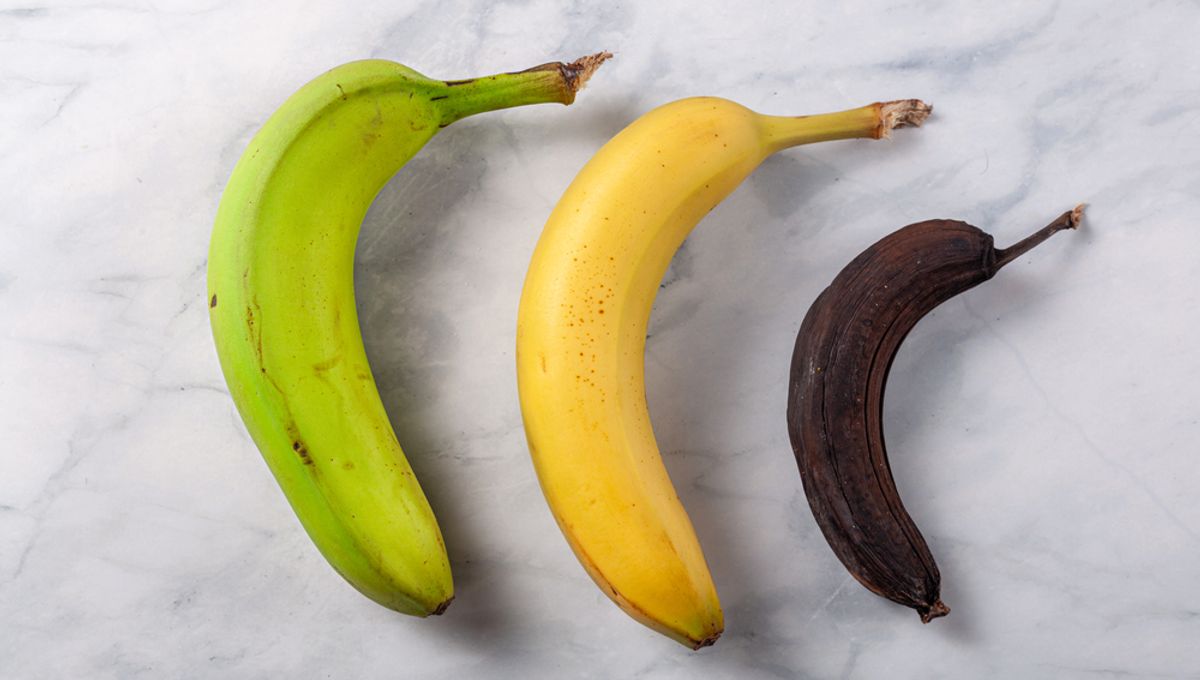
With 105 million tonnes produced annually, it’s safe to say bananas are one of the world’s favorite fruits (although botanically speaking they are berries, and the “tree” they grow on is actually a herb). While you can eat the skin of this nutritious and versatile snack, their temperamental nature means they’re ripe for only a couple of days. So, why do bananas brown so fast and, more importantly, how can we put a stop to it?
Why do bananas turn brown?
Bananas have one airborne hormone to thank for their impressively colorful life cycle – ethylene. This hormone works to speed up the ripening process, and while some fruit and vegetables just absorb ethylene, others actively produce it. Producers of ethylene fall into two categories – climacteric fruits and non-climacteric fruits. Climacteric fruits, like bananas, produce a burst of ethylene during ripening while non-climacteric fruits, like citrus fruits and melons, stop producing ethylene when they’re removed from the plant or vine.
This means climacteric fruits will continue to ripen after they’ve been harvested, and storing climacteric fruits next to non-climacteric or ethylene-absorbing fruit and veg will cause the other produce to continue ripening.
Contact with ethylene causes the acids in the fruit to start to break down, softening its flesh and breaking up green chlorophyll pigments. This changes the fruit’s appearance while also making it softer and sweeter. As the ethylene continues to do its thing to bananas, the yellow pigment will break down and form brown spots in a process called enzymatic browning.
Despite getting a particularly bad reputation for making your fruit bowl go mushy, bananas are just one of a number of fruits that will continue to overripen your produce. That’s why storing ethylene-producing fruits like bananas, apples, and avocados together is a recipe for disaster and banana bread.
How to stop bananas from going brown
While there might not be a way to completely halt the browning process, there are ways you can keep your bananas perfectly ripe for longer.
Firstly, using a banana hook will prevent bruising and damage to soft tissue, which increases the effects of ethylene. You can also follow the lead of some supermarkets and wrap the stems in plastic wrap. The stem of the banana is where most of the ethylene is released from; if you contain this area then you prevent the hormone from reaching the rest of the banana.
Another method is to store them somewhere cool and dark. Sunlight will encourage the ripening process and Dole recommends 12°C (54°F) as the optimum temperature for banana storage. That being said, storage inside an enclosed container will increase ethylene levels and speed up ripening.
There is also some controversy surrounding the practice of storing bananas in the fridge. While it’s effective to freeze bananas for use in things like smoothies or ice cream, the refrigeration process can cause “chilling injury”, which affects pre-ripened bananas, stopping them from ripening further and causing a bitter and unpleasant taste. It’s recommended that only perfectly ripe bananas are refrigerated, and although their skin will quickly turn dark brown, the fruit inside should retain its ripe flavour.
Additionally, while cut banana slices will brown in a matter of seconds, the addition of an acidic juice like lemon or pineapple will stop this process by neutralizing the banana’s pH.
Source Link: Why Do Bananas Turn Brown And How Do We Stop Them?